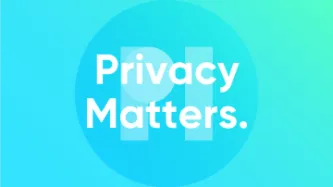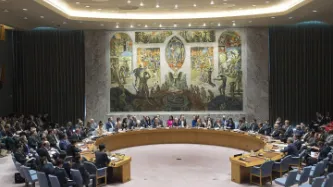Search
Content type: News & Analysis
Back in January, Privacy International and over 50 other organisations wrote to Google asking the company to take action over pre-installed apps that cannot be deleted (often known as “bloatware”), which can leave users vulnerable to their data being collected, shared and exposed without their knowledge or consent. Thousands of people from over 50 countries signed our petition supporting this ask. We welcome the constructive conversations we had with Google following this campaign and for the…
Content type: News & Analysis
In the last few weeks, the UK government has announced various new measures to ensure that crossings across the Channel were “inviable” including by appointing a new role of “clandestine Channel threat commander" and further plans to deploy the navy to stop migrants from crossing to the UK from France across the Channel. Premature plans it seems, as not only would such measures be contrary to the UK’s international obligations to allow individuals to seek asylum in the UK, but also since such…
Content type: Landing Page
We fight for a world where technology will empower and enable us, not exploit our data for profit and power. This means providing people with ways to take concrete action to protect themselves or their relatives, express their outrage and regain control over technology.
Content type: Long Read
The Law Enforcement Data Service (LEDS) is a unified, common interface to a new mega-database currently being developed by the Home Office National Law Enforcement Data Programme (NLEDP).
It might not sound like the most exciting thing in the world (and it isn't!) - but it will have a profound impact on policing and surveillance in the UK for generations.
We believe that the development of the programme poses a threat to privacy and other rights and must be subjected to strong oversight,…
Content type: Case Study
Privacy matters. It matters when you’re walking the streets of your home town and when you’re fleeing your home in search of safety. It matters if you’re at a protest or if you’re in bed.
Our wellbeing in each of these instances depends on the protection of our privacy. No situation can be fully understood in isolation.
Unjustifiable intrusions on our privacy become a weapon to eradicate communities and prey upon refugees and asylum seekers, push people away from protests in fear of…
Content type: Explainer
In the name of reinforcing migration control and increasing security, the EU is introducing a host of new surveillance measures aimed at short-term visitors to the Schengen area. New tools and technologies being introduced as part of the visa application process and the incoming “travel authorisation” requirement include automated profiling systems, a ‘pre-crime’ watchlist, and the automated cross-checking of numerous national, European and international databases. There are significant risks…
Content type: News & Analysis
No doubt this is turning out to be a summer full of news about internet companies' digital dominance.
In June, Google notified the European Commission of its plan to acquire Fitbit - a plan that we immediately identified would raise grave concerns for our well-being as consumers.
Today the European Commission has made its decision. And it's good news.
The European regulator has decided to undertake a detailed 'Phase 2' investigation, rather than just green light Google's plans, voicing also the…
Content type: News & Analysis
Banning TikTok? It's time to fix the out-of-control data exploitation industry - not a symptom of it
Chinese apps and tech companies have been at the forefront of the news recently. Following India's ban of 59 chinese apps in July, President Trump announced his desire to ban TikTok, shortly followed by his backing of Microsoft's intention to buy the US branch of its parent company ByteDance. Other than others lip syncing his public declaration, what does President Trump fear from this app, run by a firm, based in China?
It's all about that data
One clear answer emerges: the exploitation of…
Content type: Case Study
Numerous sexist, mysoginistic, homophobic and racist practices are flourishing online, in ways that are harder for national authorities to stop than when abuse takes place offline. One of these practices is ‘revenge pornography’, which involves online distribution of private sexual images without the consent of the person depicted.
One victim of image based sexual abuse (more commonly known as revenge porn): Chrissy Chambers. Chrissy was 18 years old when her boyfriend convinced her to spend…
Content type: Advocacy
Privacy International responded to a call for submissions by the UK Committee on Standards in Public Life ahead of their electoral regulation review.
This submission follows our recommendations on challenging data exploitation in the online political campaigning ecosystem, and suggests avenues for the Electoral Commission to adapt its regulatory powers to address the resulting privacy challenges, as well as public concerns about data-driven election campaigning.
Content type: Explainer
At first glance, infrared temperature checks would appear to provide much-needed reassurance for people concerned about their own health, as well as that of loved ones and colleagues, as the lockdown is lifted. More people are beginning to travel, and are re-entering offices, airports, and other contained public and private spaces. Thermal imaging cameras are presented as an effective way to detect if someone has one of the symptoms of the coronavirus - a temperature.
However, there is little…
Content type: Video
This podcast is part of a special series from PI's Reproductive Rights and Privacy Project.
The series comes out on the last Monday of every month.
You can listen and subscribe to the podcast where ever you normally find your podcasts:
Spotify
Apple podcasts
Google podcasts
Castbox
Overcast
Pocket Casts
Peertube
Youtube
Stitcher
and more...
Content type: News & Analysis
New technologies continue to present great risks and opportunities for any users but for some communities the implications and harms can have severe consequences and one of the sectors facing increasing challenges to keep innovating whilst protecting themselves and the people they serve is the humanitarian sector.
Over the course of engagement with the humanitarian sector, one of our key observations has been how risk assessments undertaken in the sector omitted to integrate a hollistic…
Content type: Press release
MI6 has been forced to apologise to the Investigatory Powers Tribunal after two of its officers asked court staff to return documents relating to MI6’s use of agents and not show them to judges. The Tribunal suggested MI6’s actions were “inappropriate interference”.
The revelation emerged in an ongoing legal case considering what crimes intelligence informants are allowed to commit, after it was revealed that MI5 maintains a secret policy under which agents can be “authorised” to…
Content type: Examples
The US Immigration and Customs Enforcement service announced in July that the State Department will not issue visas to students whose universities shift to online-only learning and they must leave the country or face deportation. More than 1 million higher education students in the US come from overseas, though enrollment has been declining since 2016, and the move is a blow to university budgets. Eight percent are planning to operate online-only, 60% are planning for in-person instruction, and…
Content type: Examples
The New Zealand MP Hamish Walker, a member of the centre-right opposition National party, admitted leaking the details of all the country’s 18 active COVID-19 cases to the media in order to “expose the government’s shortcoming”. Walker said he had been advised that his actions were not illegal. The government has announced an independent inquiry.
Publication: Guardian
Writer: Eleanor Ainge Roy
Content type: Examples
New US federal data released by the CDC in response to freedom of information requests show striking racial and ethnic disparities in all parts of the country in who gets infected and hospitalised with coronavirus. A survey of 640,000 infections in nearly 1,000 US counties found that Latino and African-American US residents are three times as likely to become infected and twice as likely to die of the virus as white people living the same places. In areas of Arizona and several other places,…
Content type: Examples
After ORG asked questions via its legal representative, AWO’s Ravi Naik, the UK’s Department of Health and Social Care agreed to change the period it would retain Test and Trace data from 20 years to eight. Public Health England manager Yvonne Doyle explained that the novelty of COVID-19 was the reason for keeping the data longer, in case PHE needed to get back in touch with those who had tested positive with additional information.
Publication: ZDNet
Writer: Daphne Leprince-Ringuet…
Content type: Examples
In early July the Open Rights Group issued a pre-action legal letter to UK health secretary Matt Hancock and the Department of Health and Social Care saying they have breached requirements under the Data Protection Act 2018 and GDPR by failing to conduct an impact assessment for the Test and Trace system. ORG and its lawyers, AWO, had been asking for details of the DPIA since the beginning of June, a few days after the system was launched. In their response, the DHSC’s lawyers said “there were…
Content type: Examples
The October 2019 Presidential Decree 98/2019 granted the Hellenic Police the option of using drones in policing and border management for broad purposes; previously they were limited to using them for purposes such as preventing forest fires or helping rescue people after a natural disaster or an accident. By spring 2020, the Hellenic Police had begun using their new powers in cities such as Athens and Thessaloniki to enforce compliance with lockdown measures instituted to curb the spread of…
Content type: Examples
Israel’s initial success in curbing the spread of the coronavirus in April was followed in June by a surge in cases that government advisers blamed on insufficient resources for ministries to implement an effective trace-and-trace programme and increase testing to the level that would show clearly where cases were appearing so outbreak could be suppressed quickly. Among the problems is the decision to use security service Shin Bet’s recently disclosed database of mobile phone location data to…
Content type: Advocacy
Introduction
In February 2020, the Australian Competition and Consumer Commission (ACCC) commenced an investigation into the proposed acquisition of Fitbit by Google, which was originally announced in November 2019.
In March 2020, we made a submission to the ACCC, arguing that the acquisition would very likely have onerous implications for both consumers and markets. We asked the Australian regulator to apply strict scrutiny and not let hisory once again repeat itself. We concluded that the…
Content type: Video
You can listen and subscribe to the podcast where ever you normally find your podcasts:
Spotify
Apple podcasts
Google podcasts
Castbox
Overcast
Pocket Casts
Peertube
Youtube
Stitcher
And more...
Content type: News & Analysis
The UN Special Rapporteur on the promotion and protection of human rights and fundamental freedoms while countering terrorism, Professor Fionnuala Ní Aoláin together with Dr. Krisztina Huszti-Orbán, released today a key report on the “Use of Biometric Data to Identify Terrorists: Best Practice or Risky Business?”.
The report explores the human rights risks involved in the deployment of biometrics emphasising that
in the absence of robust rights protections which are institutionally embedded…
















